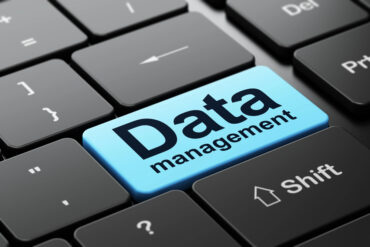
What kind of data can a vacuum cleaner provide? Turns out a lot – and much of it can help digital marketers (includes infographic).
Who would ever need information that a vacuuming robot could collect? The marketing departments of companies all over the world. High-end Roomba devices, a type of vacuuming bot produced by iRobot, have been collecting data as they clean — data which could potentially be sold to Google, Amazon, Apple, and other powerful corporations.
In late July, iRobot’s chief executive, Colin Angle, made statements about this data, hinting that it might be sold to other companies. Just days later, the company backtracked, saying that it had no plans to sell data — but could potentially “share” it with companies that could use it to improve the smart home market as long as customers consented. Putting the legality of selling consumer data aside and potential privacy backlash, what kind of information is being collected, and how would marketers make use of this data?
Roomba data
So what kind of information are Roomba vacuums collecting as they cruise around your floor? Mainly, the locations of walls and furniture. As it cleans, the Roomba essentially maps out the home to help it avoid bumping into obstacles. These home maps, especially when combined with furniture type and locations could be helpful for marketers and smart home developers, if iRobot does end up sharing them.
Targeted advertising
The information Roombas collect might seem banal, but it can help digital marketers personalize advertising and use their budget more effectively. Say a Roomba bumps into a couch, but not an armchair — marketers at furniture companies could use that information to target the homeowners with digital chair advertisements.
[ Related: IoT in Retail Marketing: Three Ways to Engage Customers ]
Marketers are always trying to deliver the right product to the right customer at the right time — having information on an individual homeowner’s needs could be extremely valuable. Fifty-three percent of marketers want to use big data to be more “customer-centric,” but using data like iRobot is collecting is also becoming a must for companies to stay competitive in the global economy.
A goldmine for digital marketers
Though the type of information Roombas currently collect may seem basic, it’s a potential gold mine for marketers. Finding out the size and location of the home, and the number of furnishings could clue in marketers to the income of the homeowners — especially if the vacuums become smarter, recognizing brands and other key features of the home.
Spatial relationships within the home could also help marketers make decisions about which smart home products to offer certain customers. Even the most mundane data can be used by marketers to make decisions about who their target market is, how to advertise to those customers, and increase their overall sales conversions.
Smart systems, personalization and privacy
The digital advertising market is growing every year. In 2015, companies saw $153.65 billion in revenue from digital advertising, and the market is expected to reach $260.36 billion globally by 2020. Big data is now an important component of digital marketing (46 percent of marketers planned to use it in 2017) — it allows companies to not only predict customer behavior and plan future campaigns, the data also makes it easier to calculate return on investment (ROI). Smart systems and devices like the Roomba are becoming more popular for their convenience and personalization, but some customers aren’t quite ready to give up the privacy that might need to be sacrificed for these systems to work properly.
For more on marketing and data analytics, check out the infographic below.
(Source: Villanova University’s Online Master of Science in Analytics degree program.)






























